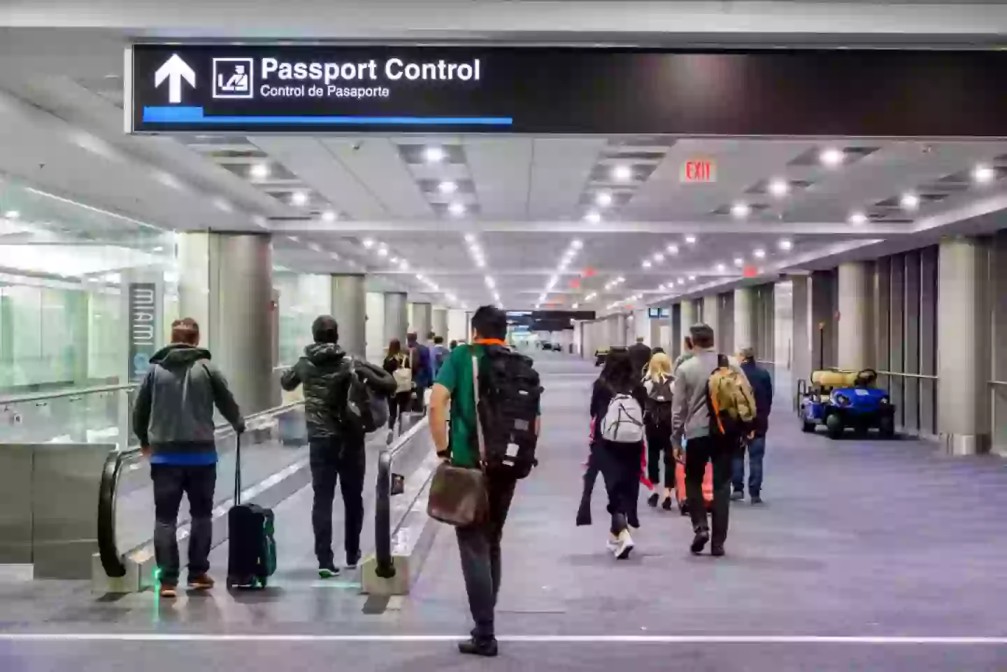Trump’s travel ban on 12 nations takes effect early Monday, June 9

The travel ban targets individuals from Afghanistan, Myanmar, Chad, the Republic of Congo, Equatorial Guinea, Eritrea, Haiti, Iran, Libya, Somalia, Sudan, and Yemen.
U.S. President Donald Trump’s directive restricting entry for citizens of 12 countries will take effect at 12:01 a.m. ET (0401 GMT) on Monday.
The administration says the measure aims to safeguard the nation from threats posed by “foreign terrorists.”
The travel ban targets individuals from Afghanistan, Myanmar, Chad, the Republic of Congo, Equatorial Guinea, Eritrea, Haiti, Iran, Libya, Somalia, Sudan, and Yemen.
Entry restrictions will also partially affect citizens from seven additional countries: Burundi, Cuba, Laos, Sierra Leone, Togo, Turkmenistan, and Venezuela.
President Trump, a Republican, explained that the countries facing the toughest restrictions were identified based on factors such as harboring significant terrorist activity, lack of cooperation on visa security, failure to verify traveler identities, poor criminal record-keeping, and high visa overstay rates in the U.S.
He referenced a recent incident in Boulder, Colorado, where an Egyptian national threw a gasoline bomb at a pro-Israel rally as justification for the new restrictions, although Egypt itself is not included in the travel ban.
This latest ban is part of Trump’s broader immigration policy aimed at tightening U.S. borders. It echoes a previous order during his first term that barred travelers from seven Muslim-majority nations.
The announcement has sparked dismay and disbelief both among officials and citizens in the affected countries.
Chadian President Mahamat Idriss Deby Itno reacted by ordering his government to halt issuing visas to U.S. citizens.
In a Facebook post, he emphasized Chad’s dignity and pride, contrasting it with countries like Qatar that have offered gifts such as a luxury plane to the U.S. and pledged large investments.
Meanwhile, Afghans who worked for U.S. or U.S.-funded projects and hoped to relocate to the United States fear the ban may force them back to Afghanistan, where they risk retaliation from the Taliban.
Democratic lawmakers in the U.S. also condemned the ban.
Representative Ro Khanna called it “draconian and unconstitutional” on social media, affirming that people have the right to seek asylum.
